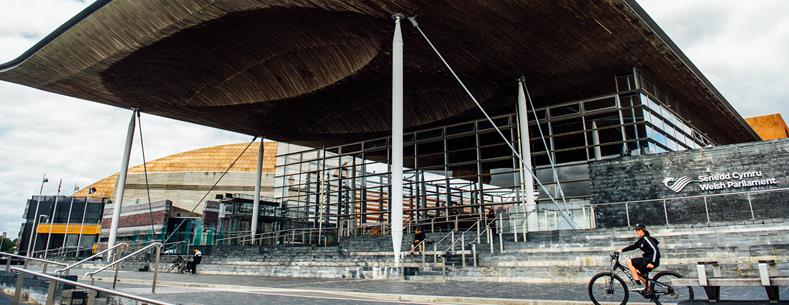
Welsh Government announces plans for conversion therapy ban
The Welsh Government this week gave more detail on its plans for banning conversion therapy.
Powers to bring forward a criminal ban are not devolved to the Welsh Parliament, so legislation being prepared in Westminster is expected to include Wales alongside England.
But recent changes, most obviously Boris Johnson’s announcement that ‘transgender conversion therapy’ would not be included in the plans, were not met with approval by senior Welsh politicians.
The U-turns in Westminster followed the recognition by the Prime Minister that many aspects of a ban were un-evidenced and unworkable.
Go it alone
This week’s announcement lays the groundwork for Wales to go it alone over the controversial policy. Even if it cannot fully implement its own ban, Wales will “do everything possible”, using “all the levers” it has to end 'conversion therapy'.
It says it will “seek the devolution of any necessary additional powers” to make up for what it calls a “betrayal by the UK Government”.
Wales’ Deputy Minister for Social Partnership, Hannah Blythyn, announced at the end of last month that the Welsh Government would commission “urgent legal advice on the unilateral action we are able to take to ban conversion therapy.”
The new statement issued on Monday, and backed up by an update in the Senedd on Tuesday, makes it clear legal advice has not yet been produced. But the Welsh Government says it will nonetheless begin by establishing a “dedicated campaign”.
Expert group
It announced the establishment of a “working group of experts” who will advise on “key elements as a ban is developed”.
Alongside representatives for children and young people, and LGBTQ+ people, the group will apparently include “representatives from faith communities”. That is a positive step, so long as those included are genuinely representative of faith communities – particularly those who recognise and understand the concerns many Christians have.
Attempts to set up a similar ‘expert advisory group’ in Scotland likewise promised to have representatives from all sides – but when the group’s membership was made public it was shown to exclude any who had raised concerns over religious freedom.
Wales should not make the same mistake. Not least, because failing to pay attention to the concerns of religious communities could lead to the Welsh Government breaching the European Convention on Human Rights. Many activists demand legislation which would do just that, but it is not in lawmakers’ gift to comply.
Education and healthcare
The Welsh Parliament lacks the power to criminalise those who carry out so-called ‘conversion therapy’. It would require a radical shift in devolution powers to enable the Senedd to bring forward its own legislative ban. It seems unlikely that powers would be granted to Wales to allow it to do what Westminster itself says is impossible.
But the Senedd does have responsibility for education and healthcare. So what do these plans mean for healthcare for children with gender dysphoria? Moves to adopt the ‘Memorandum of Understanding’ in Wales’ NHS will not prove so controversial, but any further steps to enforce affirmative care will be met with anger from feminists and parents alike.
And recent changes to sex education in Wales have made it impossible for parents to exempt their own children from the classes, whatever is being taught. Now the Welsh Government says it will ‘educate’ about ‘conversion therapy practices’ as part of its new campaign.
Strident voices from the LGBT community are being backed by Welsh Government ministers on banning ‘conversion therapy’. Will they also back their claims that such ‘therapy’ includes prayer and pastoral care? That parents should not be able to raise their children in the Christian faith? Could these insidious and repressive ideologues soon be getting these ideas put in the school curriculum too?
Aus Christians unite against extreme conversion therapy law
2025-12-10 12:15:40Majority of respondents oppose Scot Govt ‘conversion practices’ ban
2025-10-17 08:40:58
